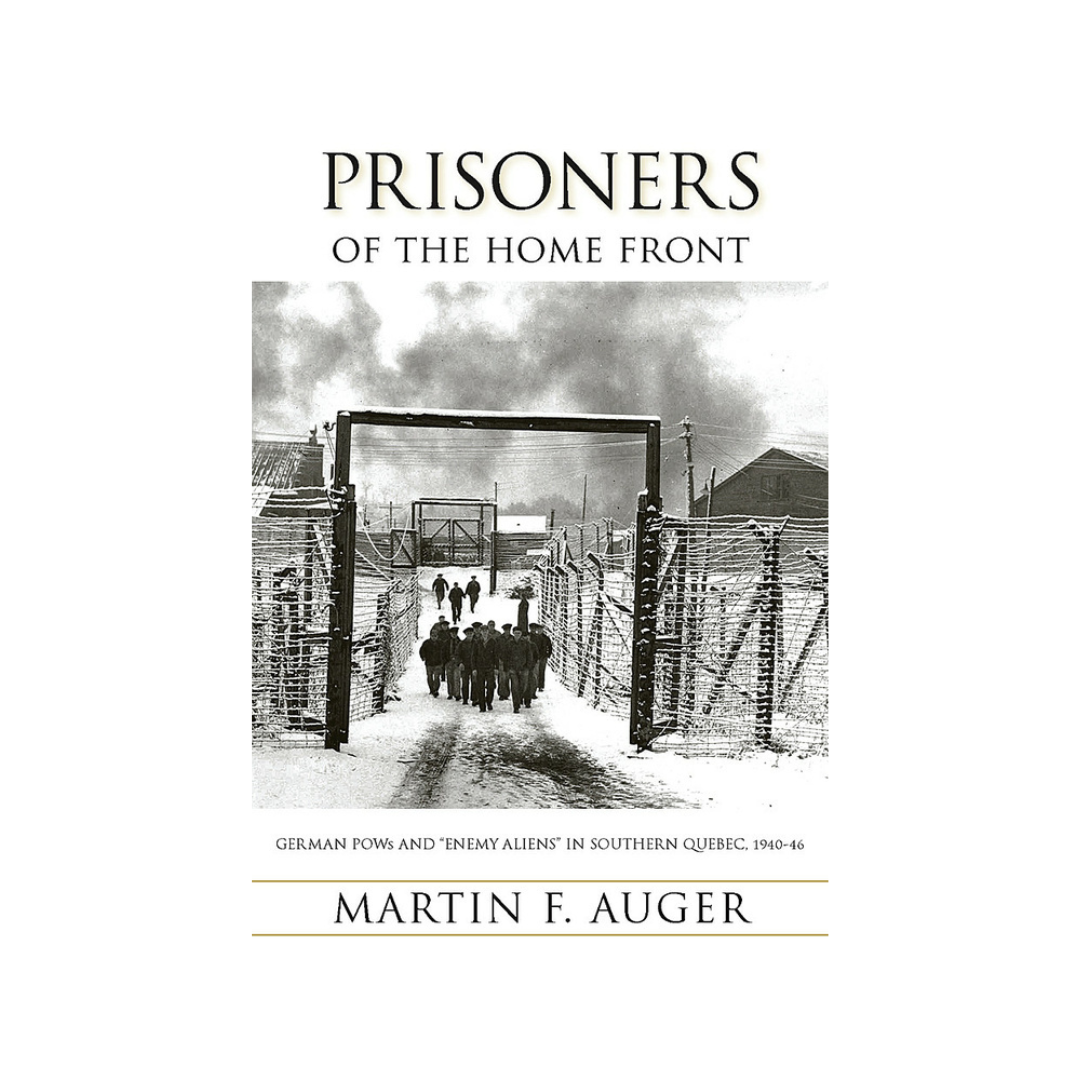Prisoners of the Home Front by Martin F. Auger
$34.95
Prisoners of the Home Front : German Pows and “Enemy Aliens” in Southern Quebec, 1940-46 by Martin Auger
This book explores the internment of 40,000 German civilians and POWs in Quebec during World War II. Auger details the challenges faced by inmates, emphasizing Canada’s adherence to humane treatment. The book sheds light on the Canadian home front, contributing to Canadian history, military history, and regional studies.
“A fascinating story. Auger’s conclusions, based on extensive research in primary sources, are filled with insightful analysis. Those wanting good popular history written to scholarly standards will find no better.” – Chris Madsen, author of Another Kind of Justice: Canadian Military Law from Confederation to Somalia
“Auger’s stimulating analysis provides a welcome addition to this growing literature. His book provides the benchmark for future study of Canada’s little-known history as a captive power during the Second World War.” – Kent Fedorowich, co-author of The British Empire and Its Italian Prisoners of War, 1940-47
In the middle of the most destructive conflict in human history, almost 40,000 German civilians and prisoners of war were detained in internment and work camps across Canada. Five internment camps were located on the southern shores of the St. Lawrence River in the province of Quebec: at Farnham, Grande Ligne, ile-aux-Noix, Sherbrooke, and Sorel. Prisoners of the Home Front details the organization and day-to-day affairs of these internment camps and reveals the experiences of their inmates. Martin Auger shows how internment imposed psychological and physical strain in the form of restricted mobility, sexual deprivation, social alienation, and lack of physical comfort. In response, Canadian authorities introduced labour projects and education programs to uphold morale, thwart internal turmoil, and prevent escapes. These initiatives were also intended to expose prisoners to the values of a democratic society and prepare them for postwar reintegration. Auger concludes that Canada abided by the Geneva Convention; its treatment of German prisoners was humane. Prisoners of the Home Front sheds light on life behind barbed wire, filling an important void in our knowledge of the Canadian home front during the Second World War.
Martin F. Auger is completing his doctorate in history at the University of Ottawa. His thesis examines aircraft design and development in Canada during the Second World War.





